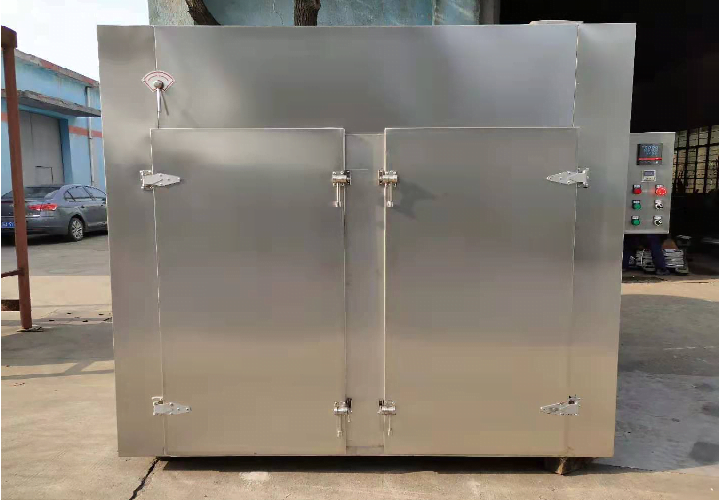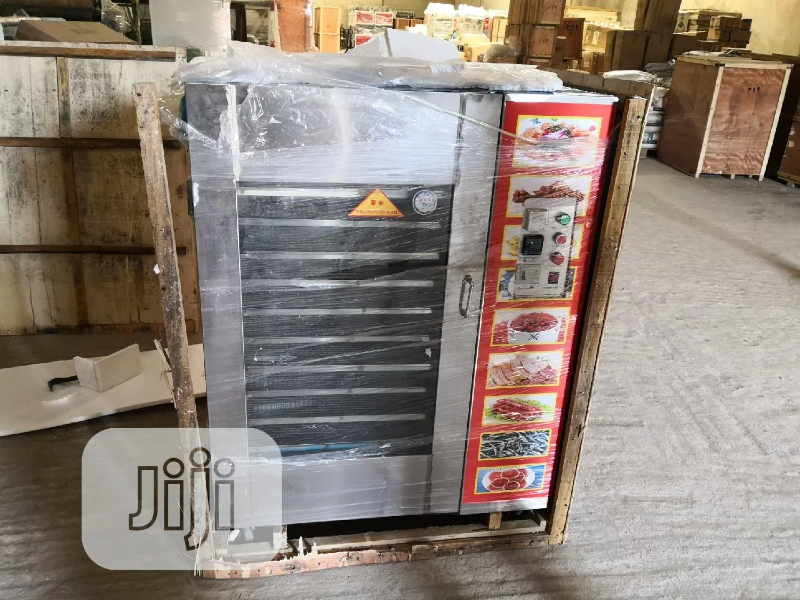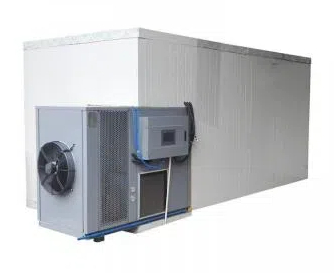
Content Menu
● Introduction
● Understanding Food Drying Machines
>> Types of Food Drying Machines
● Benefits of Using Food Drying Machines in Nigeria
● Factors Affecting Food Drying Machine Prices in Nigeria
● Price Range of Food Drying Machines in Nigeria
● Top Food Drying Machine Brands in Nigeria
● How to Choose the Right Food Drying Machine
● Tips for Using Food Drying Machines Effectively
● Maintenance and Care of Food Drying Machines
● The Future of Food Drying Technology in Nigeria
● Conclusion
● Frequently Asked Questions
>> 1. Q: What is the average lifespan of a food drying machine in Nigeria?
>> 2. Q: Can I use a food drying machine to preserve Nigerian dishes?
>> 3. Q: Are there any foods that shouldn't be dried in a food drying machine?
>> 4. Q: How much electricity does a food drying machine use in Nigeria?
>> 5. Q: Can I make money using a food drying machine in Nigeria?
Introduction
In recent years, the demand for food drying machines in Nigeria has skyrocketed as more people recognize the benefits of food preservation and the potential for reducing food waste. Whether you're a home cook looking to extend the shelf life of your produce or a business owner seeking to expand your food processing capabilities, understanding the world of food dehydrators is crucial. This comprehensive guide will explore everything you need to know about food drying machines in Nigeria, from their prices and types to their benefits and top recommendations.
Understanding Food Drying Machines
Food drying machines, also known as food dehydrators, are appliances designed to remove moisture from various food items, including fruits, vegetables, meats, and herbs. By eliminating water content, these machines help preserve food for longer periods while maintaining nutritional value and flavor. In Nigeria, where food preservation is essential due to inconsistent power supply and the need to reduce post-harvest losses, food drying machines have become increasingly popular.
Types of Food Drying Machines
There are several types of food drying machines available in the Nigerian market:
1. Stackable Tray Dehydrators: These are the most common and affordable options for home use. They consist of multiple trays stacked on top of each other, with a fan and heating element at the base or top.
2. Box and Shelf Dehydrators: These are larger, more industrial-style machines with removable shelves. They offer more space and are suitable for commercial use or large families.
3. Cabinet Dehydrators: These are high-capacity machines designed for commercial or industrial use. They can handle large quantities of food and often come with advanced features like temperature control and timers.
4. Solar Dehydrators: These eco-friendly options use solar energy to dry food. While they're cost-effective in the long run, they depend on weather conditions and may not be suitable for all regions in Nigeria.

Benefits of Using Food Drying Machines in Nigeria
Investing in a food drying machine can offer numerous advantages for both households and businesses in Nigeria:
1. Extended Food Shelf Life: Dehydration significantly extends the shelf life of foods, reducing waste and saving money.
2. Preservation of Nutritional Value: Unlike some other preservation methods, dehydration retains most of the food's original nutrients.
3. Space-Saving Storage: Dried foods take up less space, making storage easier and more efficient.
4. Cost-Effective: While there's an initial investment, food drying machines can save money in the long run by reducing food waste and allowing bulk purchases.
5. Versatility: These machines can be used for a wide variety of foods, from fruits and vegetables to meats and herbs.
6. Year-Round Availability: Dehydration allows you to enjoy seasonal foods throughout the year.
7. Healthy Snack Options: Dried fruits and vegetables make for nutritious, preservative-free snacks.
8. Business Opportunities: For entrepreneurs, food drying machines open up possibilities in the food processing and preservation industry.
Factors Affecting Food Drying Machine Prices in Nigeria
The cost of food drying machines in Nigeria can vary significantly based on several factors:
1. Capacity: Larger machines with higher drying capacities generally cost more.
2. Brand: Well-known brands often command higher prices due to perceived quality and reliability.
3. Features: Advanced features like digital controls, multiple temperature settings, and automatic shut-off can increase the price.
4. Energy Efficiency: More energy-efficient models may have a higher upfront cost but can save money on electricity bills in the long run.
5. Material: Machines made with higher quality materials, such as stainless steel, tend to be more expensive than plastic models.
6. Import Costs: Many food drying machines in Nigeria are imported, which can affect their price due to shipping costs and import duties.
Price Range of Food Drying Machines in Nigeria
The price of food drying machines in Nigeria varies widely depending on the factors mentioned above. Here's a general overview of what you can expect:
1. Entry-Level Home Dehydrators: These typically range from ₦30,000 to ₦100,000. They're suitable for small-scale home use and often have basic features.
2. Mid-Range Dehydrators: Priced between ₦100,000 and ₦250,000, these machines offer more capacity and features, making them suitable for larger families or small businesses.
3. Commercial-Grade Dehydrators: For industrial use or large-scale operations, prices can range from ₦250,000 to over ₦1,000,000, depending on the capacity and features.
4. Solar Dehydrators: DIY solar dehydrators can be built for as little as ₦20,000, while commercial solar dehydrators can cost upwards of ₦500,000.
It's important to note that prices can fluctuate based on market conditions, exchange rates, and availability.
Top Food Drying Machine Brands in Nigeria
Several brands have gained popularity in the Nigerian market for their quality and reliability:
1. Lexical: Known for their affordable and efficient home dehydrators.
2. Excalibur: A premium brand offering high-quality dehydrators with advanced features.
3. Nesco: Popular for their stackable tray dehydrators that are both affordable and effective.
4. Dalle: Offers a range of dehydrators suitable for both home and commercial use.
5. Binatone: A well-known brand in Nigeria that produces various kitchen appliances, including food dehydrators.

How to Choose the Right Food Drying Machine
When selecting a food drying machine in Nigeria, consider the following factors:
1. Intended Use: Determine whether you need it for home use or commercial purposes.
2. Capacity: Consider how much food you plan to dry at once.
3. Types of Food: Ensure the machine is suitable for the specific foods you want to dehydrate.
4. Energy Efficiency: Look for models that are energy-efficient to save on electricity costs.
5. Ease of Use: Choose a machine with user-friendly controls and easy-to-clean components.
6. Durability: Opt for machines made with high-quality materials that can withstand frequent use.
7. Warranty and After-Sales Support: Check the warranty terms and availability of customer support in Nigeria.
8. Price: Balance your budget with the features and quality you need.
Tips for Using Food Drying Machines Effectively
To get the most out of your food drying machine in Nigeria:
1. Prepare Food Properly: Clean and slice foods uniformly for even drying.
2. Avoid Overloading: Leave space between food items for proper air circulation.
3. Rotate Trays: If your machine doesn't have a rotating feature, manually rotate trays for even drying.
4. Use the Right Temperature: Different foods require different drying temperatures. Consult your machine's manual or online resources for guidance.
5. Store Dried Foods Correctly: Use airtight containers and store in a cool, dry place to maintain quality.
6. Clean Regularly: Keep your machine clean to ensure hygiene and optimal performance.
7. Experiment: Try drying different foods and combinations to discover new flavors and snacks.
Maintenance and Care of Food Drying Machines
Proper maintenance can extend the life of your food drying machine and ensure it continues to perform efficiently:
1. Clean After Each Use: Wipe down trays and the interior of the machine to prevent food residue buildup.
2. Check Filters: If your machine has filters, clean or replace them regularly.
3. Inspect Electrical Components: Regularly check cords and plugs for any signs of wear or damage.
4. Store Properly: When not in use, store your machine in a clean, dry place to prevent dust accumulation.
5. Address Issues Promptly: If you notice any unusual noises or performance issues, address them immediately to prevent further damage.
The Future of Food Drying Technology in Nigeria
As Nigeria continues to focus on food security and reducing post-harvest losses, the food drying industry is likely to see significant growth and innovation. Some trends to watch for include:
1. Solar-Powered Dehydrators: With Nigeria's abundant sunshine, solar-powered food drying machines could become more prevalent, especially in rural areas.
2. Smart Dehydrators: Integration of IoT technology could lead to smart dehydrators that can be controlled and monitored via smartphones.
3. Energy-Efficient Models: As energy costs rise, manufacturers are likely to focus on developing more energy-efficient food drying machines.
4. Compact Designs: For urban dwellers with limited space, we may see more compact and multi-functional food drying machines.
5. Local Manufacturing: There could be an increase in locally manufactured food drying machines, potentially reducing costs and improving after-sales support.
Conclusion
Food drying machines offer an excellent solution for food preservation in Nigeria, addressing challenges related to food waste, inconsistent power supply, and the need for healthy snack options. While the initial investment may seem significant, the long-term benefits in terms of food savings, nutritional value, and potential business opportunities make it a worthwhile consideration for many Nigerians.
As you explore the world of food drying machines, remember to consider your specific needs, budget, and the quality of the machine. With the right food drying machine, you can enjoy preserved foods year-round, reduce waste, and potentially even start a new business venture in food processing.

Frequently Asked Questions
1. Q: What is the average lifespan of a food drying machine in Nigeria?
A: With proper care and maintenance, a good quality food drying machine can last 5-10 years or more. However, this can vary depending on the brand, usage frequency, and maintenance.
2. Q: Can I use a food drying machine to preserve Nigerian dishes?
A: Yes, food drying machines can be used to preserve many Nigerian foods. For example, you can dry vegetables for soups, fruits for snacks, or even make dried fish or meat for long-term storage.
3. Q: Are there any foods that shouldn't be dried in a food drying machine?
A: While most foods can be dried, it's generally not recommended to dry foods with high fat content, as they can become rancid. Also, some dairy products and eggs are not suitable for home dehydration due to food safety concerns.
4. Q: How much electricity does a food drying machine use in Nigeria?
A: The electricity consumption varies depending on the machine's size and efficiency. On average, a home-use food dryer might consume between 300-1000 watts per hour. It's best to check the specifications of the specific model you're interested in.
5. Q: Can I make money using a food drying machine in Nigeria?
A: Yes, there are business opportunities in food drying. You could produce dried fruits and vegetables for sale, create dried herb mixes, or offer food drying services to farmers or other food producers. However, as with any business, it's important to research the market and regulations before starting.












